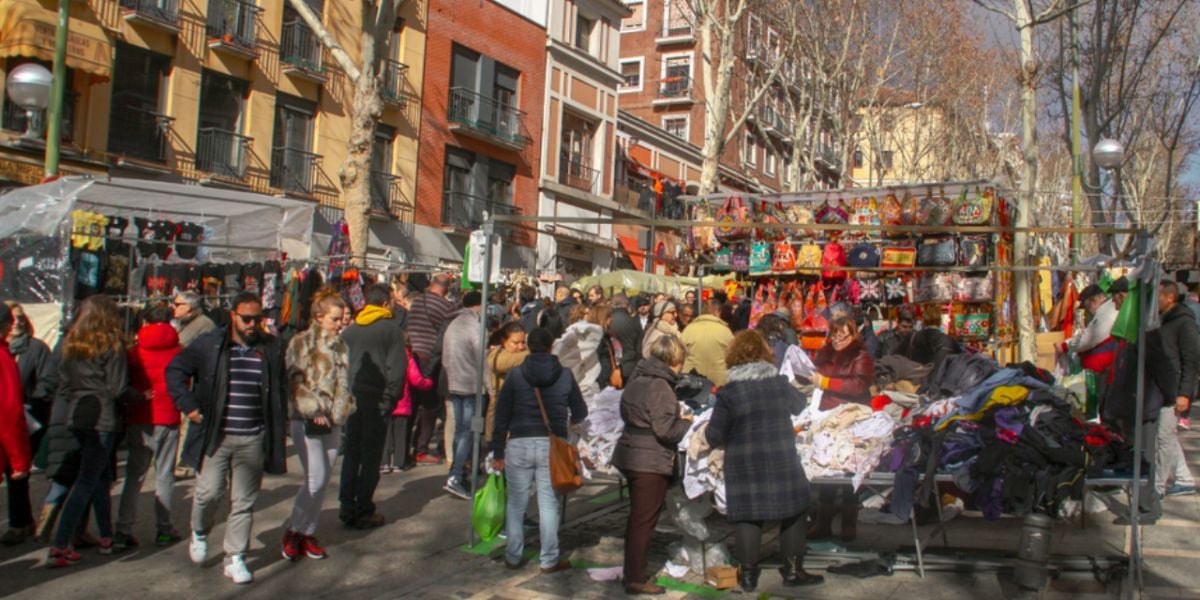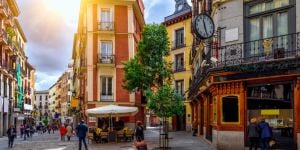
Madrid is the capital of Spain, a lively and welcoming city in the middle of the country with a thriving expat community. Most expats feel welcome and find settling down in this cosmopolitan and forward-looking metropolis easy. Still, there are a few things every newcomer should know to help ease the transition into daily life in Madrid.
General customs and etiquette in Madrid
Communication
Locals are gregarious conversationalists, and it's not uncommon to chat with someone in line or while at a café drinking coffee. Interrupting and talking loudly aren't seen as offensive; they are part of a lively conversation.
Controversial topics
Until you're familiar with someone, avoid controversial issues such as the Catalan independence movement, politics, Gibraltar, or former dictator Francisco Franco.
Greetings
When saying hello, men and women typically shake hands with each other while making eye contact. Friends may greet each other with a hug and a kiss on each cheek. Following the global outbreak of COVID-19, traditional greetings such as handshakes and hugs were temporarily replaced by elbow bumps in many regions worldwide. However, as the situation has improved, friends have resumed greeting each other in the same familiar way as they did before the pandemic.
Punctuality
The idea of being on time in Madrid varies from one situation to another and is more relaxed than in other parts of Europe. When meeting friends for drinks or dinner, arriving 15 to 30 minutes late is normal and not impolite. Don't be surprised, either, when appointments run a few minutes behind. Business meetings are occasionally delayed, though less so in the international corporate community.
Summer holidays
Summer in Madrid is hot, very hot. Many residents leave the city during August to escape the heat and vacation on beaches elsewhere in the country. You will probably want to join them.
You may want to read about networking etiquette in Madrid and business culture as well.
Normal opening hours in Madrid
The working day tends to start a little later in Madrid. Many shops and businesses open at 9:00 or 10:00 in the morning and stay open until 9:00 pm. Opening hours are later during the weekends, and small shops and some chain stores are closed on Sundays. Banks generally keep short hours from 8:30 am to 2:30 pm.
You may have heard of the Spanish siesta or midday break. While it's becoming less common, many small or locally-owned shops close in the afternoon from 2:00 pm to 5:00 pm while shopkeepers go home for a meal and a break. Pharmacies, department stores and big supermarket brands, however, tend to remain open all day long.
Mealtimes in Madrid
Speaking of daily schedules in Madrid, expats may need to make a few adjustments for mealtimes. What you eat and when you do so follow a typical Spanish schedule in Madrid, and it's helpful to know what to expect.
Desayuno (breakfast): Usually coffee with toast, a pastry or cereals. Always small and eaten before 9:00 am.
Mid-morning snack: A mid-morning snack around 11:30 am, usually a small sandwich or pastry with a coffee.
Comida (lunch): This is the biggest meal of the day, generally eaten between 2:00 pm and 4:00 pm. Restaurants offer a multi-course menu of the day, and it's common to have a glass of wine or beer with this meal, even if you're returning to the office.
Merienda (late afternoon snack): This little snack holds you over until dinner and is generally eaten between 5:00 pm and 7:00 pm. Both sweet and savoury foods are common.
Cena (dinner): Dinner is eaten late, whether at home or at a restaurant. Weeknight dining begins around 9:00 pm, and it's common to meet at 10:00 pm (or later) on weekends. Dinner is lighter than lunch, and it's usual to share raciones or portions of different dishes at the table.
Although most local restaurant hours follow this timetable for lunch and dinner, there are always a few exceptions. Restaurants in touristy areas may advertise that you can order food at any time. Bars and cafés will also have sandwiches or small plates available all day long.
Good to know:
Tapas culture is one of Madrid's well-known traditions. It's common to join friends or colleagues after work to tapear (to do tapas). This involves meeting in a bar and dining on a few small tapas dishes such as patatas bravas, Russian salad, olives, tortillas and croquettes.
We do our best to provide accurate and up to date information. However, if you have noticed any inaccuracies in this article, please let us know in the comments section below.








